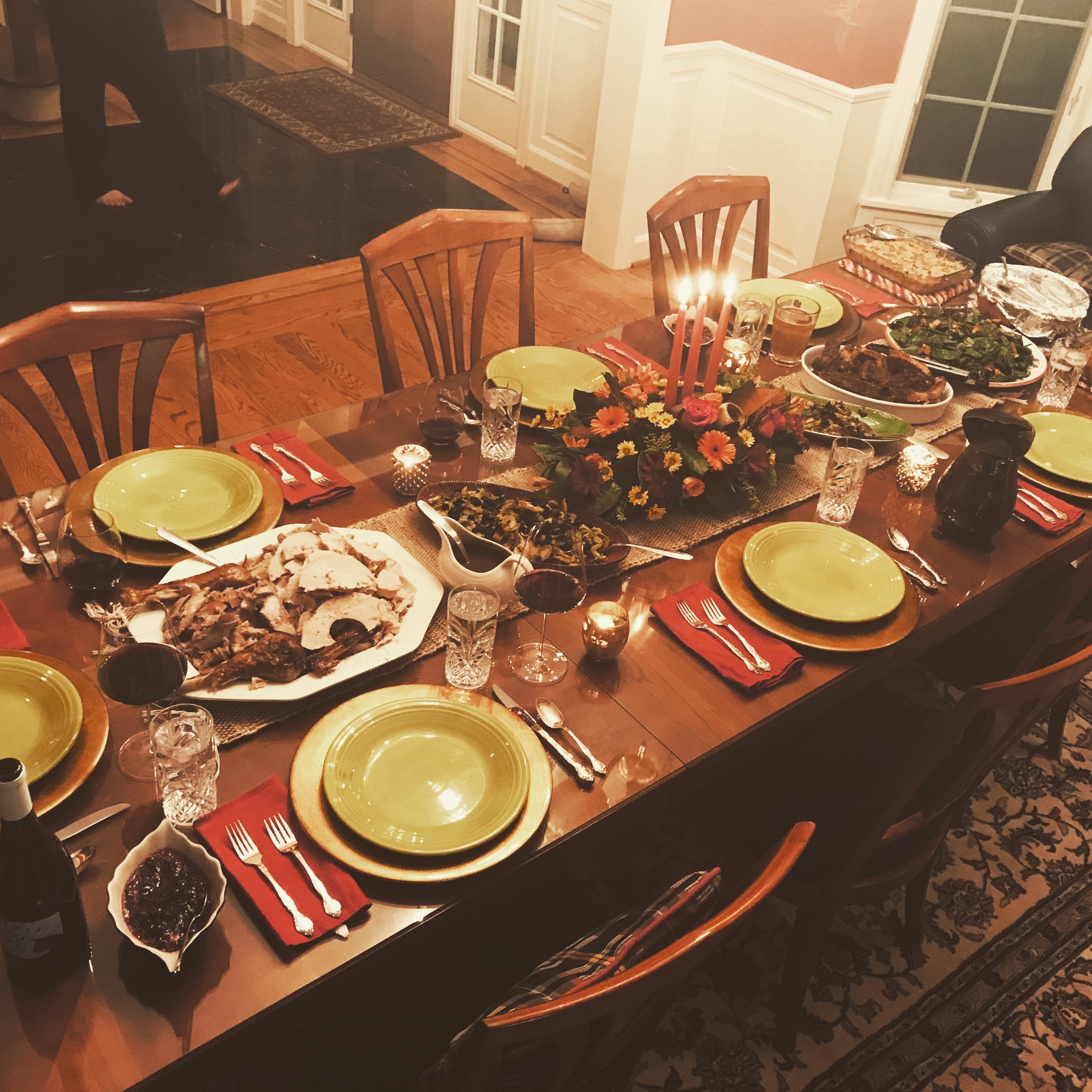In today’s world, with things like hockey practice and homework, families are lucky to eat food prepared in their own kitchen on most nights. I well remember years like that and I had trouble with portion sizes, cravings, and satisfaction.
What happens when we shovel our food in, on the run, and dash off to the next commitment?
Our brain gets zero ‘satisfaction messages’ from the meal, and very often that lack of satisfaction leads to cravings later on.
Now I make it a priority to enjoy my food. I place my napkin in my lap and eat slowly.
My husband likes to say there is eating, and then there is dining.
I prefer to dine, even on oatmeal.
When I was a child my parents taught us to give thanks for every meal, eat with a napkin in our lap, and ask to be excused from the table. Meals were not to be taken lightly. Often times Mom would give us “the look” and we knew that meant to put the fork down between bites.
Mom was right.
Using our best table manners at every meal gets the message to our brain that we have had adequate nourishment. Our brain signals us that we are full enough, and we can go on with our day.
When we rush and grab food quickly, we have no recollection of exactly how much food we shovel in. Our brain doesn’t even have a chance to register that we actually had a meal.
Our subconscious brain registers the thought “I’m rushing the thought out the door”, not “I am rushing out the door AND eating 500 calories worth of nuts” In a moment we can easily double our calorie needs for the day. Many people eat more calories standing up than at any other time. The problem is that our brain doesn’t know that, and it signals us to eat more when we finally slow down.
Slowing down to eat not only helps us regulate out portions, it also aids in digestion and satisfaction. This one change alone can make a huge shift makes a huge weekday and weekend portion control. One reason we lose it on the weekends is that we have not had relaxing meals during the week. When we get to the weekend, we equate relaxing with overindulging.
When we take a moment to appreciate our meals and make time to enjoy them, we automate our portions naturally. In many cases, digestive issues improve too.
In my coaching groups, we focus on these behaviors extensively, by implementing strategies for emphasizing daily gratitude, and eating if and only if seated #EatIFF, and our best table manners.
FREE Video Series: The Best Exercises for Women Over 40!

Free 3-Part video Series goes in-depth teaching you how to perform the above exercises step-by-step THE RIGHT WAY without getting hurt.


